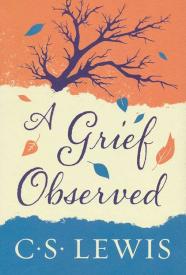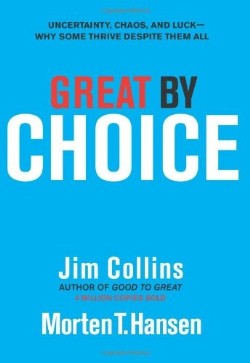I Am : Names, Divine Attributes, And Characteristics Of Jehovah
$19.95
For over two hundred years’ people did not call on God by name. It wasn’t until the birth of Adams grandson Eno’s, that men began to call upon the name of the Lord.
God explained to Moses that He had appeared to Abraham, Isaac, and Jacob. Moses was given the task of returning to Egypt and demanding the release of the Israelite slaves.
Moses asked God When I come unto the children of Israel and shall say unto them, the God of your fathers hath sent me unto thee, and they say to me, what is his name? What shall I say unto them. God said to Moses “I AM THAT I AM” and He said, thus you shall say to the sons of Israel, I AM has sent me to you.” God goes on to say to Moses… “Thus, you shall say to the sons of Israel, The LORD, the God of your fathers, the God of Abraham, the God of Isaac, and the God of Jacob, has sent me to you. This is My Name forever, and this is My Memorial-Name to all generations.”
I’AM
Holy; Creator; The Most-High God; Righteous; Joy; Peace; Lord Mighty in Battle; God of the Battle; Conquer; High Tower and Strong Tower; Defender; Deliver; Thy Strength; Thy Sword; Thy Shield; Your Rock; The Wine; Your Fortress; Your Refuge; Shepherd; Kingsman Redeemer; Jubilee; Horn of thy Salvation; Sanctifier; Love; Mercy; Grace; Hope; Provider; Healer; Omnipresent; Omnipotent; Judge and Jealous.
Now there are covenant names of Jehovah and redemptive names through which God revealed himself to Israel. These different names do not signify 40 different God’s, but HIS Characteristics, or HIS attributes.
in stock within 3-5 days of online purchase
SKU (ISBN): 9781973609827
ISBN10: 1973609827
Richard Mattock
Binding: Trade Paper
Published: December 2017
Publisher: WestBow Press
Print On Demand Product
Related products
-
Mere Christianity
$17.99Add to cartArguably the 20th century’s most influential Christian writer, C.S. Lewis sought to explain and defend the beliefs that nearly all Christians at all times hold in common. His simple yet deeply profound classic, originally delivered as a series of radio broadcasts, is a book to be thoroughly digested by believers and generously shared with skeptics. Paperback with French f laps and deckled page edges.
-
Grief Observed
$15.99Add to cartWritten by C. S. Lewis with love and humility, this brief but poignant volume was first published in 1961 and courageously encounters the anger and heart-break that followed the death of his wife, an American-born poet, Joy Davidman. Handwritten entries from notebooks that Lewis found in his home capture the doubt and anguish that we all face in times of great loss. He questions his beliefs in this graceful and poignant affirmation of faith in the face of senseless loss.
-
Great By Choice
$29.99Add to cartThe new question
Ten years after the worldwide bestseller Good to Great, Jim Collins returns with another groundbreaking work, this time to ask: Why do some companies thrive in uncertainty, even chaos, and others do not? Based on nine years of research, buttressed by rigorous analysis and infused with engaging stories, Collins and his colleague, Morten Hansen, enumerate the principles for building a truly great enterprise in unpredictable, tumultuous, and fast-moving times.The new study
Great by Choice distinguishes itself from Collins’s prior work by its focus not just on performance, but also on the type of unstable environments faced by leaders today.With a team of more than twenty researchers, Collins and Hansen studied companies that rose to greatness-beating their industry indexes by a minimum of ten times over fifteen years-in environments characterized by big forces and rapid shifts that leaders could not predict or control. The research team then contrasted these “10X companies” to a carefully selected set of comparison companies that failed to achieve greatness in similarly extreme environments.
The new findings
The study results were full of provocative surprises. Such as:The best leaders were not more risk taking, more visionary, and more creative than the comparisons; they were more disciplined, more empirical, and more paranoid.
Innovation by itself turns out not to be the trump card in a chaotic and uncertain world; more important is the ability to scale innovation, to blend creativity with discipline.
Following the belief that leading in a “fast world” always requires “fast decisions” and “fast action” is a good way to get killed.
The great companies changed less in reaction to a radically changing world than the comparison companies.
The authors challenge conventional wisdom with thought-provoking, sticky, and supremely practical concepts. They include: 10Xers; the 20 Mile March; Fire Bullets, Then Cannonballs; Leading above the Death Line; Zoom Out, Then Zoom In; and the SMaC Recipe.Finally, in the last chapter, Collins and Hansen present their most provocative and original analysis: defining, quantifying, and studying the role of luck. The great companies and the leaders who built them were not luckier than the comparisons, but they did get a higher Return on Luck.
This book is classic Collins: contrarian, data-driven, and uplifting. He and Hansen show convincingly that, even in a chaotic and uncer






Reviews
There are no reviews yet.